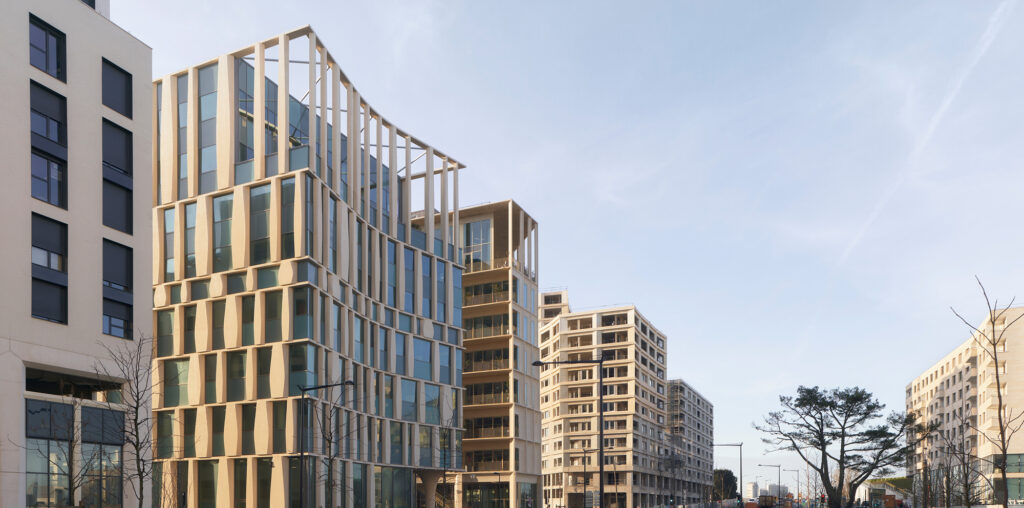

Text description provided by the architects. The new L’Ark office building in the Bordeaux Belvédère district, designed by Cino Zucchi Architetti, stands as a testament to the city’s ongoing architectural renaissance, integrating contemporary design with a deep respect for the city’s urban fabric.



The disposition on the ground and the typological layout of the L’Ark office building articulate and specify the general masterplan guidelines in relationship to the specific features of the site and the overall design of the open spaces.

The large dimension of the building mass is articulated folding its perimeter inwards to generate a layout that unites the H-shaped scheme to a centralized one. The shorter sides of the parallelepiped shape – facing the Boulevard and the park behind it – fold into two gentle concave curves. The continuous perimeter “skin” which delimits the interior spaces is divided into several layers which donates depth and a strong light and shadow effect: the inner wall alternates a ribbon window band with an opaque one faced by anodized aluminum shading elements reacting with the weather conditions.



The columns in the facades varying in thickness and rhythm at irregular intervals, are arranged in seven irregular orders signed by string-course cornice. The shape of the columns accentuated by the slight undercut of the bands generates a screen that gives the same time volume and depth to the building’s facades. The top order connects the last two levels while opening a recess that hosts a protected terrace garden. These columns are not merely structural but also highly expressive, crafted one by one from concrete with a texture and color that refers to Bordeaux’s historic stone. Their design balances classical proportions with a contemporary aesthetic. They were shaped inside formwork made with numerical control manufacturing technologies that have permitted to transfer and control of the continuous variation of some compositional parameters with which they were designed. In their massive essence, the result is almost a free-standing structural screen.

Finally, the project is able to evoke French and Bordeaux’s historic architectural elements without any nostalgic spirit – for example, the atrium columns that recall the angular trompes of French architecture in a contemporary approach.






